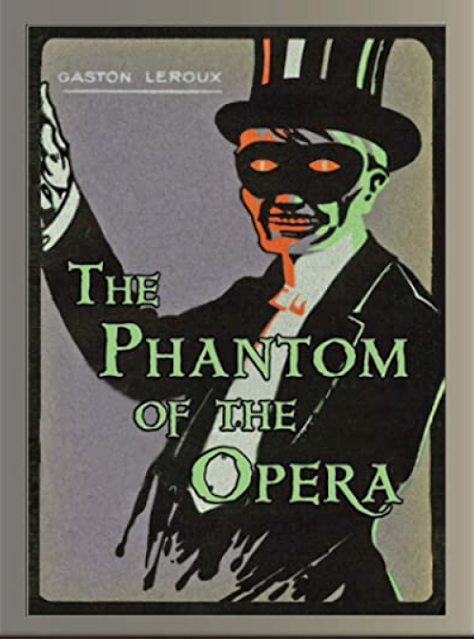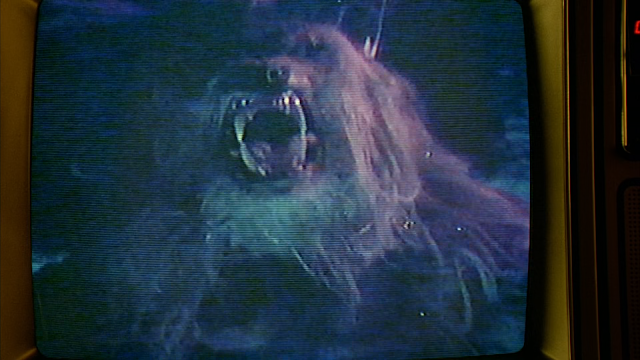Reading: The Phantom of the Opera
It seems that this year has been a good time to catch up on classics. A few months back I dipped into two classics for two different book clubs, the first being Phantom of the Opera.
The Phantom of the Opera is a story I'm well familiar with from both various movie adaptations and it's long-staying effects on popular culture. Surprisingly, I'd never actually read the book despite plowing through other gothic and horror classics like Dracula and Frankenstein as a kid. What I didn't expect and found myself pleasantly surprised by is how exciting and funny this book actually is.
The format of the story is one I'm fond of, it's presented as a historical work, a piecing together of different accounts, news, letters and papers that answer the question of a mysterious disappearance at the Paris Opera House. Both impeccably researched about its setting and having lot of details grounding it in the Paris, it works well as a piece of historical fiction. There's quite fantastical and mysterious elements to the Phantom story, but what's fun is the way that each mystery and supposed supernatural phenomenon is explained away by the scientific, mechanical, and by the every-day. The whole conceit of the Phantom character and his feats are of course in and of themselves very fantastical, but the narrative is constructed in such a fun and convincing way that you accept it.
What's interesting to me is what gets lost in translation from book to screen. There's a ton of Phantom adaptations, all with different approaches to the characters and the story, and I've watched a fair amount of them in the past as well as watching new ones with the Girls Guts Giallo screening series, so I feel familiar enough to make some observations. Of the adaptations I've seen, one thing that seems to get lost in translation is that the Phantom isn't just a tragic, deformed musical talent, but he's also something of an evil genius and criminal mastermind. In addition to his great skill as a musician, the Phantom is also described as a master of traps and illusions, constructing elaborate devices of torture as well as being in part responsible for the very structure of the opera house and his lair beneath it. In a lot of films, he's downgraded more to a musically talented sewer freak instead of a grand scheming architect who'd traveled the world.
The story of the book is in part a romance, a mystery, and also a daring swashbuckler. Each element comes into play with different focuses in the narrator's research. I was expecting the romance and tragedy but was greatly surprised by the exciting, intriguing and also quite funny elements of the story. The opera is illustrated in great detail both as a building and as a space of curious characters, its own little culture and ecosystem with specific internal workings and affairs. In the story, the opera house has just changed hands to new directors who don't believe in the Phantom as their predecessors did, and it's quite humorous watching them doubt and then start to unravel, becoming more paranoid and superstitious as the strange events start piling up.
The romance element of the book is two-fold. First there's the ill-fated seeming romance between opera singer Christine Daae and the young Viscont de Chagny, Raoul, who are both very youthful and full of dramatic teen energy. They are both, to me, very annoying but also quite funny. They're so impulsive and full of grand gestures in a very Romeo and Juliet sort of way. The second romance element is between Christine and the Phantom, who has deceived her initially by pretending to be an angel of music- a figure which is known to her from the stories of her childhood. When Christine learns the true nature of the sweet voice who's been giving her singing lessons unseen inside her dressing room, the infatuation turns more to a mix of fear, pity and revulsion. Both of these relationships serve as an interest contrast to each other, and also bring out the truly scary qualities of the Phantom as well as the pitiable qualities. In a lot of ways, it's a great depiction of abusive dynamics.
One interesting thing that I again didn't expect, is how quite a lot of the action involves a character known simply as "The Persian", who turns out to know much more about The Phantom than anyone in the story realized. The Persian was once a chief of police and had known the Phantom in his home country, and there is something of a respect and admiration there, though ultimately the Persian's goal is to prevent the Phantom from harming others. This is a point in the book where the story could turn to gross orientalism (and certainly some of the elements are there with depicting Persia as an exotic place with a Sultana interested in perverse torture) but I felt that the potential grossness is undercut by what a competent and likeable character The Persian is. Without his cunning and bravery, there'd be no happy ending for the story's young lovers, nor would the narrator have a full account of the events that transpired at the opera.
As far as I know, the movie and musical adaptations don't really give the sense of the Phantom as someone who moves freely beyond the opera house, or as someone who's had adventures elsewhere. It's fun the way that the book expands away from just the opera house setting, even when the majority of the events do occur inside or beneath it.
If you like mysteries, adventure and gothic fiction, I'd definitely recommend this book. It's also had an updated translation, so the text should be more accurate to Leroux's original French novel. I read the 2009 Penguin Classics edition, which is rated favorably on this website comparing editions.


.png)

Comments
Post a Comment